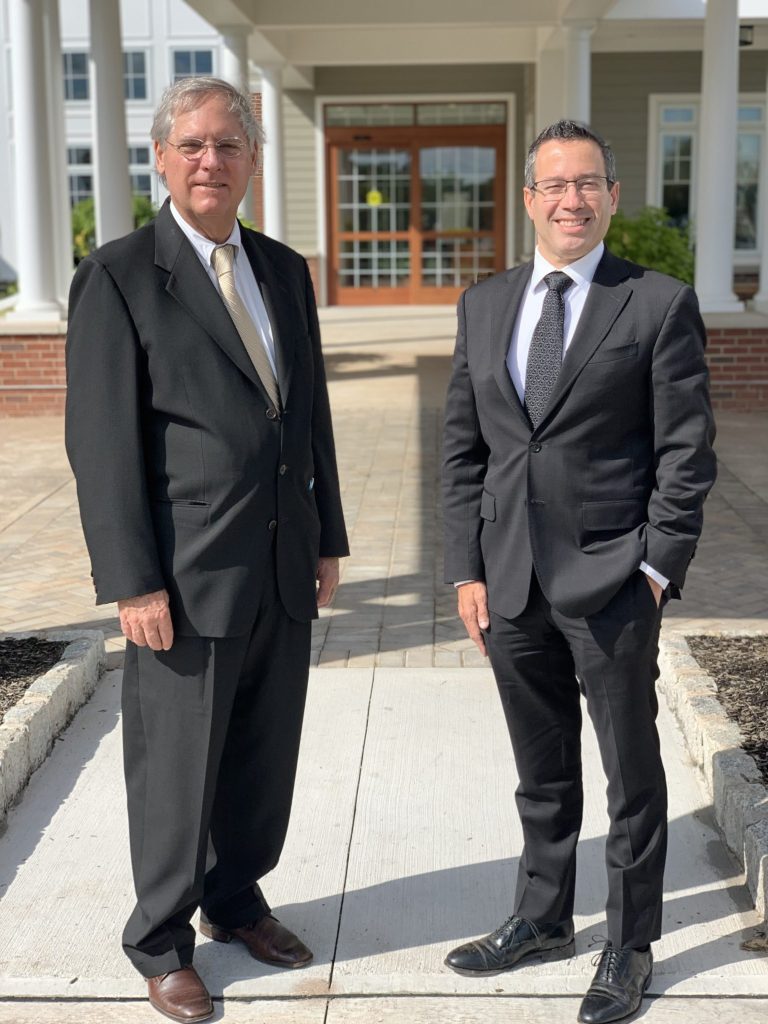
Many older adults are healthy, vigorous and mentally sharp, with no need to change doctors. But for adults with multiple chronic health conditions that make day-to-day activities a challenge, a geriatrician might be the best choice.
What is a geriatrician?
Geriatricians are doctors who are trained to care for older people. They focus on quality of life and what patients want from their medical care. As explained by Dr. Sheppell, Medical Director at Fellowship Senior Living, “geriatricians are trained to recognize when issues are a normal part the of the aging process rather than being cause by disease or medication side effects. We specialize in geriatric syndromes.”
They spend more time at each appointment and collect more information than an internal medicine doctor would. They ask about lifestyle, family, and get each patient’s full medical history. Geriatricians can act as a point of contact on a team of healthcare providers, keeping track of drug interactions and prioritizing treatments for people dealing with several conditions.
Unfortunately, doctors who are not experienced in caring for older patients may dismiss signs of adverse drug reactions as dementia or depression. A geriatrician will evaluate your loved one’s medications and recommend changing or stopping certain drugs to avoid problems.
A geriatrician can also help your loved one live as independently as possible. They may refer them to a physical or occupational therapist, or give advice on home care services.
4 reasons for seeing a geriatrician.
- You’re on multiple medications. The more meds you’re on, the more likely you are to experience side effects, have cognitive problems or end up in the hospital. A geriatrician can review all your meds and determine which ones you really need and which you can shelve.
- You’re having memory problems. A geriatrician can give you a medical exam and memory screening. Memory loss can be caused by any number of conditions, including depression, medication interactions, thyroid disorders, vitamin deficiencies or dementia.
- You’re less mobile. If you’re experiencing balance problems or having trouble walking, a geriatrician can assess your balance and gait, and prescribe therapy to improve mobility and reduce your risk of falling.
- You’re hospitalized. Research shows that older adults who receive care from a geriatrician in the hospital do better once they’re discharged. They’re more likely to go directly home after discharge, rather than to rehabilitation centers or nursing homes.
How to find a geriatrician in your area.
For starters, try the American Geriatrics Society’s geriatrician finder to see if any of the nation’s 7,000 certified geriatricians practice near you. Ask family, friends and other healthcare providers for recommendations. Take the time to research the doctors’ credentials and experience on Healthgrades.com.
- Training: Ask whether the geriatrician is board certified. Also note whether he or she is affiliated with a hospital or university that specializes in caring for older adults.
- Accessibility: How easy is it to get to your doctor? Does the office provide in-home services? Also, make sure the geriatrician you choose accepts your insurance plans.
- Communication: Find a geriatrician who shows an interest in getting to know you and who will consider your treatment preferences. Also ask how they’ll communicate with you when you’re not in their office and how they’ll coordinate care with your other healthcare providers.
- Philosophy: Make sure you and your geriatrician are on the same page when it comes to your health goals. Ask what other programs or services are available. Some geriatricians offer programs for staying healthy, such as exercise classes or fall-prevention education.
Keeping residents healthy is our specialty.
At Fellowship Village, our focus is on the health and well-being of residents. That’s why we offer a wide variety of wellness programs, classes and events. Residents also have access to preventive health screenings and specialized care from physicians, nurse practitioners and board-certified geriatricians at our on-site healthcare center. At the Fellowship Medical Group, our expert team of physicians and nurse practitioners are available five days a week for consultations.
With over 30 years of medical and geriatric care through North and Western Morris County, we’re also pleased to announce that Dr. Arthur Sheppell, a board-certified geriatrician and internist, recently joined the geriatrics program as the full time Medical Director of Fellowship Senior Living. Formerly serving as Community Physician and part time Medical Director, Dr. Sheppell is no stranger to the values and standard of care here at Fellowship Senior Living. “I look forward to being a key leader of the Fellowship Medical Group while providing excellence in the care of our resident and the community.”
To learn more about our specialized services for both residents and nonresidents, visit the Fellowship Medical Group page.




